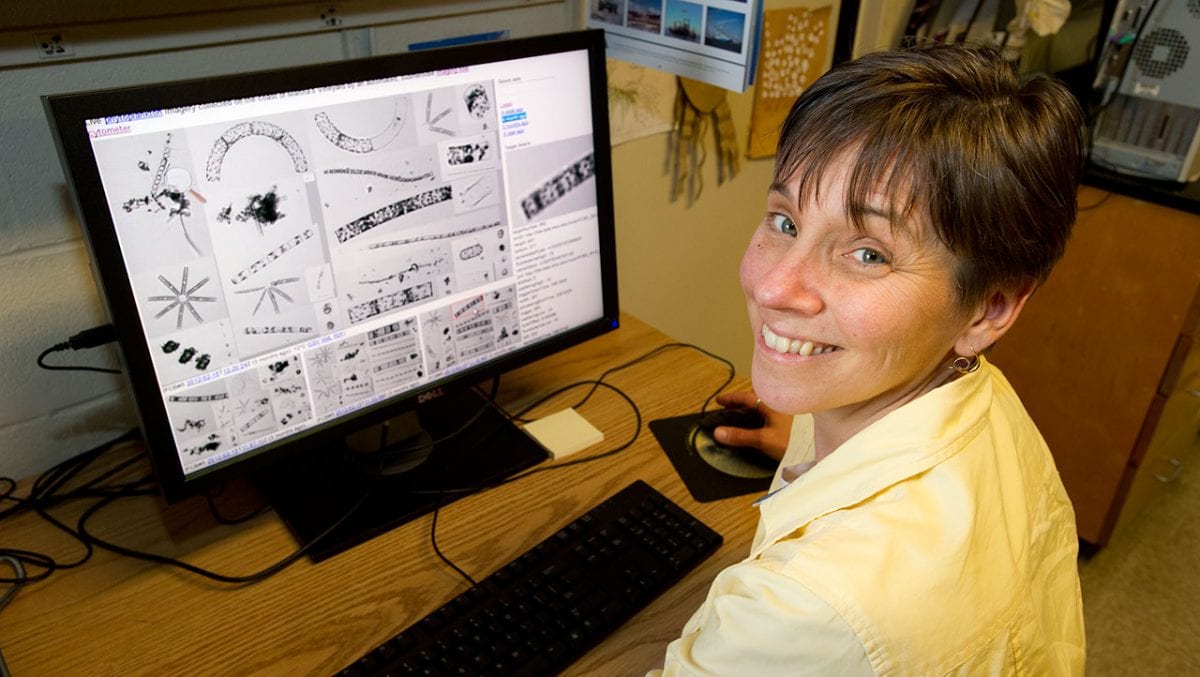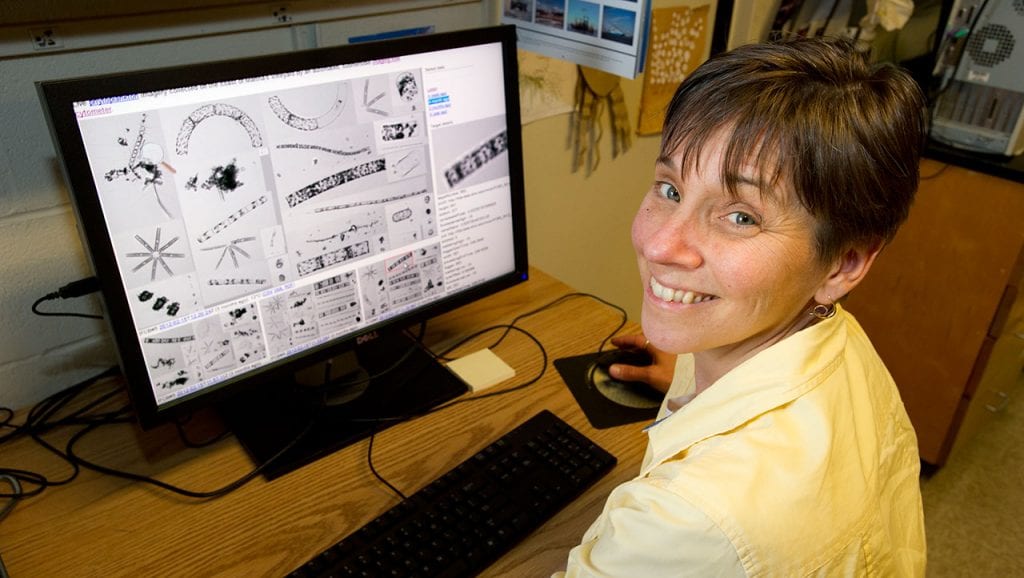Heidi Sosik Selected as a Fellow of The Oceanography Society

January 16, 2018
Heidi Sosik, a senior scientist in the Biology Department at Woods Hole Oceanographic Institution (WHOI) has been named a 2018 Fellow of The Oceanography Society (TOS). Sosik’s accomplishments will be formally recognized on Feb. 13, 2018, during a ceremony at the 2018 Ocean Sciences Meeting in Portland, Oregon.
Election as a fellow is bestowed upon TOS members by their peers to honor individuals who have attained eminence in oceanography through their outstanding contributions to the field of oceanography during a substantial period of years. Sosik was recognized for her “outstanding contributions to phytoplankton ecology, sensor development and graduate and undergraduate ocean science education.”
“I am deeply honored to have been nominated and selected as a TOS Fellow,” says Sosik. “It is humbling to be part of such an esteemed group. For me, it feels like this award is an acknowledgment of all the incredible colleagues and students I’ve had the privilege to work alongside.”
Sosik’s research focuses mainly on marine phytoplankton—the massive community of microscopic plants that form the base of the food chain in the ocean. She co-invented/developed a robotic instrument called the Imaging FlowCytobot, which detects and photographs plankton underwater and then transmits observations back to shore. The innovative tool is helping scientists better understand what factors in the environment determine where and when different kinds of phytoplankton grow and bloom.
“In 2008, the instrument was deployed and provided early warning of harmful algal blooms on the Texas coast,” wrote James Yoder, who recently retired after many years as WHOI Vice President for Academic Programs, in his nominating letter to TOS. “Local health agencies used the information to decide on which shellfish harvesting areas should be closed in order to prevent shellfish-related human illnesses.”
Sosik is the lead investigator of the new Long Term Ecological Research (LTER) site, which spans the continental shelf off the Northeast U.S. coast. The multi-year project, funded by the National Science Foundation, will assess microscopic plant and animal populations and yield large amounts of data that will aid in the understanding of the flow of energy through the ecosystem from phytoplankton to fish, illuminating how the food web is structured and shifts in response to environmental changes.
Sosik came to WHOI as a postdoctoral scholar in 1993 and joined the staff in 1996 as an assistant scientist. She became a senior scientist in 2008. In 2013, she was honored with the WHOI Senior Scientist Leadership Prize.
Sosik has received numerous awards, including The Stanley W. Watson Chair for Excellence in Oceanography in 2017, and an Arons Award for Excellence in Teaching, Advising and Mentoring in 2015.
Sosik earned her S.B. in Civil Engineering, Massachusetts Institute of Technology in 1987, her S.M. in Civil Engineering from the Massachusetts Institute of Technology in 1988, and her Ph.D. in Oceanography from the University of California, San Diego, Scripps Institution of Oceanography in 1993.
###
The Oceanography Society (TOS) was founded in 1988 to advance oceanographic research, technology, and education, and to disseminate knowledge of oceanography and its application through research and education. TOS promotes the broad understanding of oceanography, facilitates consensus building across all the disciplines of the field, and informs the public about ocean research, innovative technology, and educational opportunities throughout the spectrum of oceanographic inquiry. TOS welcomes members from all nations. Any individual, business, or organization interested in ocean sciences is encouraged to join and to participate in the activities and benefits of the society.
The Woods Hole Oceanographic Institution is a private, non-profit organization on Cape Cod, Mass., dedicated to marine research, engineering, and higher education. Established in 1930 on a recommendation from the National Academy of Sciences, its primary mission is to understand the ocean and its interaction with the Earth as a whole, and to communicate a basic understanding of the ocean’s role in the changing global environment. For more information, please visit www.whoi.edu.

